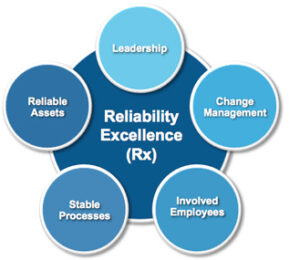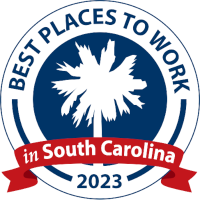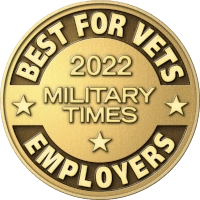U.S. Sugar Corporation Keeps the Train Moving with Reliability Excellence
The U.S. Sugar Corporation is located in Clewiston, Florida, and farms over 187,000 acres of land to produce an estimated 70,000 tons of raw sugar each year. What makes this particular operation unique is their private agricultural railroad, which is the largest short line in the United States and is used to transport all of its sugar cane production across 120 miles of track to and from various factories and refineries. This asset is the key driving force for keeping the company operating at highly cost-efficient levels, since rail transport requires significantly less fuel than truck transportation.
With 14 locomotives and approximately 1,000 railroad cane cars in service, each carrying up to 40 tons of sugar cane, U.S. Sugar’s railroad crew of 80+ employees are challenged each day to keep the rail system operating efficiently. Their Railroad Mechanical Department (RMD) is charged with completing daily defect inspections, routine maintenance, and heavy repairs for the entire fleet, but their maintenance operations were leaving them to play ‘catch-up’ with necessary inspections and much-needed repairs. The entire culture needed a complete refresh in order to keep the fleet and the corporation thriving.
An underperforming railroad fleet gets halted by the FRA
U.S. Sugar’s railroad operation was incurring excessive maintenance expenditures, due in large part to their philosophy of maintenance by quantity, not quality. With a fairly large workforce operating in a reactive mode with no control over inventory, mechanical failure rates were soaring within their locomotive line. As explained by a maintenance manager, the cane car fleet was in unacceptable condition. Simply put, the RMD were doing the best they could.
Enter the Federal Railroad Administration (FRA). The FRA is one of 10 agencies within the U.S. Department of Transportation concerned with intermodal transportation and is responsible for inspecting rail systems to ensure the safe, reliable, and efficient movement of people and goods in the U.S.
Given the current state of U.S. Sugar’s railway fleet, the FRA found serious defects in their cars and advised them to withdraw their renewal application until all repairs were made and the fleet was operating at full capacity. This was a huge setback for U.S. Sugar’s business as it could potentially drive transportation costs to unexpected levels and decrease daily production volume at their factories and refineries.
Getting back on track with Reliability Excellence
To correct these flaws within their work management processes and to get the FRA to grant their renewal, U.S. Sugar reached out and partnered with Life Cycle Engineering (LCE), industry leaders in reliability consulting for manufacturing organizations. After a few meetings to discuss the needs and the findings from on-site reviews of the railroad fleet, LCE recommended instituting Reliability Excellence® (Rx) as their foundation for change. Rx focuses on developing reliable assets, stable and repeatable business, work processes, and a well-trained and empowered workforce.

Reliability Excellence (Rx) is a holistic process focused on reliability and stability that is both functionally scalable and flexible. |
Changing culture is not easy, nor is it immediate. In fact, to achieve the full potential of Rx both LCE and U.S. Sugar would embark on a three-year implementation. During this time, both teams worked to develop processes for the following activities:
- Parts kitting and delivery
- Parts procurement and storage practices
- Planning and scheduling of all maintenance work
- Training for the SAP Planned Maintenance module
- Use of SAP-based preventive maintenance system for FRA-mandated periodic inspections
- Metrics tracking and history capture
Culture change brings sweet success at U.S. Sugar
After years developing work management and materials management processes, training staff to learn and use new software solutions, and gradually transforming an entire culture to throw out their reactive tendencies and become proactive problem-solvers, the results were in. Data shows the project was a huge success for U.S. Sugar.
Life Cycle and U.S. Sugar were able to realize the following benefits:
- Locomotive Fleet
- Widespread replacement/refurbishment of major wear and tear items (wheels, truck sets, brake rigging, engine components, generators, etc.)
- Added five newly refurbished 3,000hp road units and one 1,500 Switcher (25% of fleet)
- Funding much of this from the sale of scrap locomotives and cane cars
- Reduced fleet size by 26%
- Decreased average locomotive fleet age by eight years
- Cane Car Fleet
- Eliminated all 30 ton wheel sets
- Operating 70 ton wheel sets and phasing out the remaining 50 ton sets
- Added 89 new cane cars to the fleet
- Reduced fleet size by 27%, while achieving record factory grind rates
- Operating Budget
- Eliminated the SCFE workshop, keeping only the USSC workshop
- Reduced hourly headcount by 38%
- Eliminated wasteful spending on maintenance parts and materials
- Safety and FRA Compliance
- Entire locomotive and cane car fleet now 100% FRA-compliant
In all, U.S. Sugar’s railroad operation experienced a 34% reduction in annual operating budget and reduced their capital value of rolling stock by 27%. Their business was able to right the path with help from LCE’s Reliability Excellence practitioners and have not looked back.















